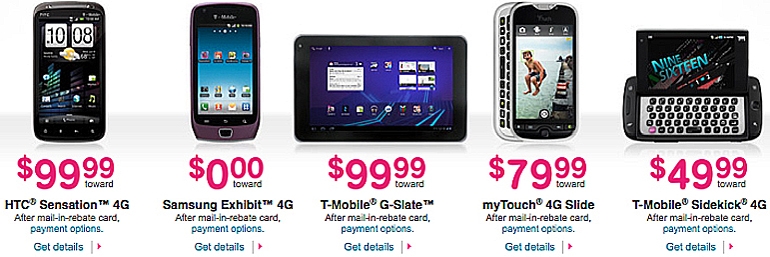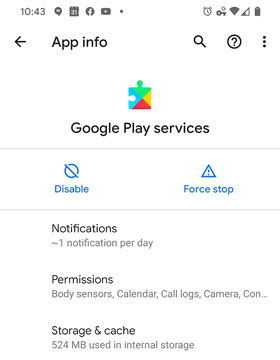Nearly everyone these days has a mobile phone. From work to friends and family, mobile have become necessities in the modern world more than luxuries. And if you’re thinking about getting a new phone, or a new service contract, you’re probably interested in getting the best smartphone deals that you can find. Today we’re talking about some of the hidden secrets of the mobile phone world, from where the best deals are to how much that incentive contract is really costing you. If you want to shop sensibly and save some cash, then read on to make sure that you’re not being fooled…

1. Refurbished Phones are the Best Smartphone Deals…
Refurbished phones are such great deals that it’s really pretty surprising that more people don’t buy them. Here’s what happens: a customer buys a phone and decides he doesn’t want it, so he returns it. But retailers generally don’t just resell the phone. It goes back to the factory, where it undergoes a complete technical inspection to make sure there’s nothing wrong with it, and is cleaned and rebooted. Then the phone is sold by a mobile operator or on the manufacturer’s web site as refurbished and at a healthy discount. There is absolutely no difference in look or functionality between a refurbished and brand new phone, in fact, you’ll even get a warranty. If you’re truly looking for the best smartphone deals, then you really need to hunt around for a refurbished model. You’ll get good savings on an essentially new phone.
2. Your Incentive Contract is Costing You Too Much
An incentive contract is when you sign up for service with a mobile operator and get a new phone in the process, usually for free, though occasionally for a small, one-time payment. Many people get a phone this way, and there are advantages. You don’t have to pay full price for your phone up front. And if you don’t have any cash, you can still get a new phone. But that incentive contract is going to end up costing you more than if you simply bought the phone yourself. The math behind this one is easy. Take the monthly price of the incentive contract and subtract the monthly price of a calling plan contract with the same monthly limits with the same operator. Now multiply the number that you get by the number of months in the contract in question. Your result is the total amount that you’re going to pay for the phone over the course of the contract. Compare that cost to the actual cost of the phone with a normal retailer, and you’ll see that you’re paying more. You’re buying a phone on an instalment plan, and like with most instalment plans you end up paying more for the convenience of not paying all at once. That doesn’t mean that you shouldn’t sign an incentive contract. But you should do the math first and see exactly how much more you’re going to end up paying.
3. Cash Rebates are Nearly Always Rip Offs
There are two kinds of cash rebate deals when you’re buying a new mobile. Rebates offered by mobile operators and phone manufacturers are usually smaller amounts and are perfectly reputable, you just have to remember to claim them. However, the vast majority of cash rebate deals come through third party web sites, and these aren’t a good idea at all. The rebate is usually on a phone with a contract attached to it from an operator. The web site gets a commission from the mobile operator for every contract that they sell. But in order to persuade you to buy from them rather than dealing directly with the operator, the site will offer you a cash rebate once you’ve made your purchase. They can afford to do this not only because the rebate is less than the commission they receive, but also because many people don’t claim the rebate, and those that do generally don’t get all the money that’s due to them. The idea is that the site places such strict and confusing conditions on getting your money back, that most people end up getting things wrong and therefore forfeit some or all of their money. The rebate is also rarely paid in a lump sum, and is usually divided up in to payments, so even if you do get all your money back it can take a year or longer to get everything. Cash rebates offered by third party sites are not a good idea; you’re far better off dealing with operators directly.
4. You Don’t Need a Top End Phone
Marketing and advertising makes it pretty easy to believe that we all need a top end phone, a Samsung Galaxy S4, an iPhone 5. But the truth is that the average user just doesn’t. These phones have plenty of features and high prices, but those features are generally not going to be used by a normal consumer, meaning that you’re wasting your money. A fast processor is a good thing, but after a certain speed the speed difference just becomes unnoticeable unless you’re running intensive programmes like photo editing software. 64 GB of memory is more than double what most of us will ever fill up on our phones. The simple truth of the matter is that you do not need the high end specs on high end phones, and you’re paying for a coolness factor rather than for something that you really need. So what do you need? A perfectly decent, mid-range phone will have a four and a half inch screen, a 1 GHz processor, 16 GB of memory, around 1 GB of RAM and an 8 MP camera. That’s what you need to do the job. If you’re getting specs higher than that, then you’re probably just wasting your money because you’re not going to use all that extra power. A phone is a big enough investment already, without having to pay for things that you’re not even going to use.
























